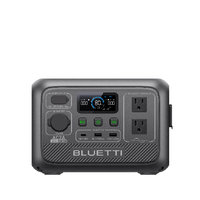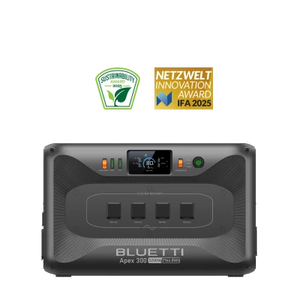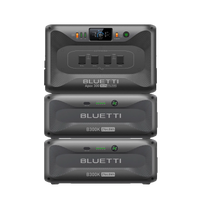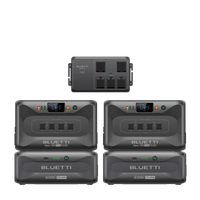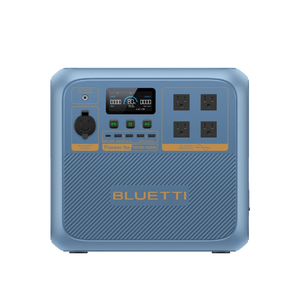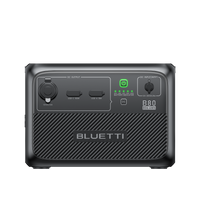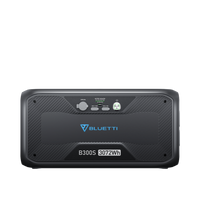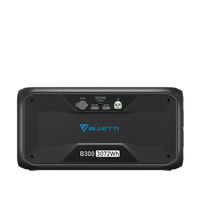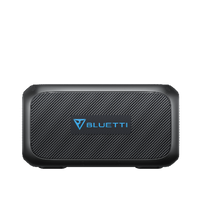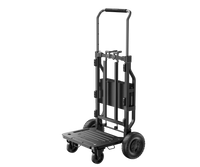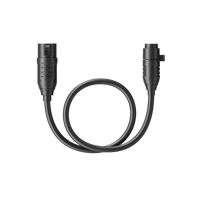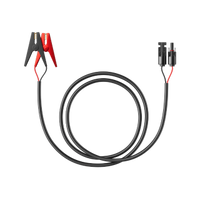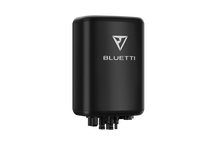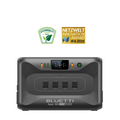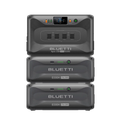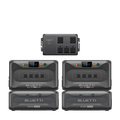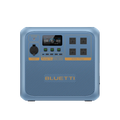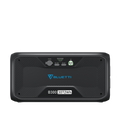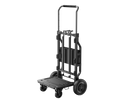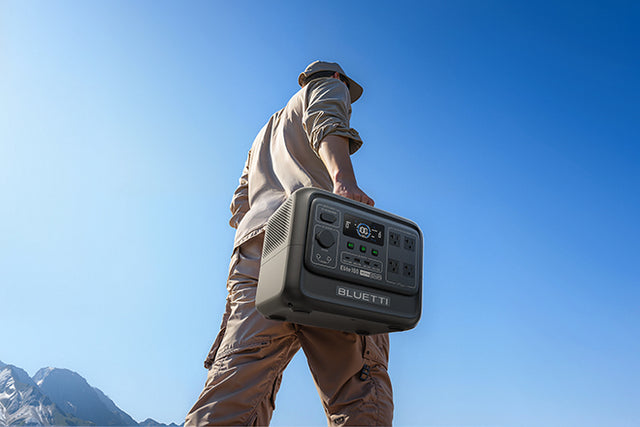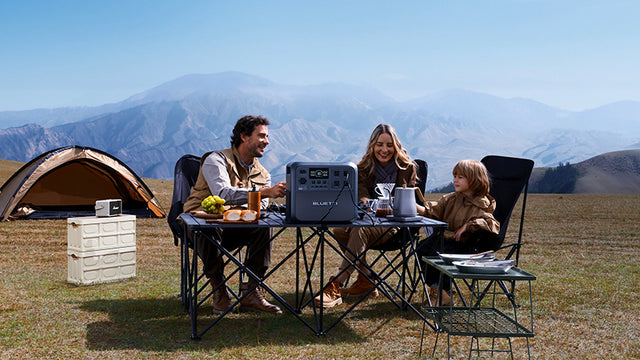Your cart is empty
Shop our productsFrom the Industrial Revolution to artificial intelligence, human reliance on a reliable power backup is burgeoning with each passing day. However, with geopolitical conflicts and climate change on the rise, power grids were never more vulnerable to calamities, either human-provoked or natural.
This necessitates the importance of a battery backup system to ensure you never run out of power.
But what is a home battery backup system? What potential benefits can it offer? How much does it cost to install one, and are they worth it? Read this guide to get answers to all these related queries.
What is a Home Battery Backup System?

As evident from the name, a home battery backup is a power storage system that provides you with electricity during blackouts or in cases when conventional grid power is not available. They store power produced from solar panels, grid stations, or any other such means.
The components of a home battery backup system include batteries to store energy, an inverter that converts current to be stored in batteries, and charge controllers to regulate the supply of current to batteries.
Types of Battery Backups for Home Use
Batteries are fundamental to home backups as they store energy, which can later be used as a reliable power source. Home battery backups are classified into four categories, which are explained below.
Lead-acid
These are among the early inventions of battery technology and have been widely used in cars. In today’s scenario, they do not have widespread popularity due to their short shelf life and low energy storage capacity. However, one potential advantage is their low price as compared to their counterparts.
Lithium-Ion batteries
Lithium-ion batteries, with their modern upgrades, LiFePO4 batteries, have gained widespread popularity as a home battery backup system. They have exceptionally long lifespans, enhanced safety, and high energy storage capacity.
Additionally, these types of batteries are lightweight, making them easily portable for off-grid uses.
Flow batteries
Flow batteries store power in the chemical fluid that runs through the battery. Each of these units consists of two electrolyte chambers separated by a membrane. The primary benefits of these products are their scalability and longer shelf life. Their high cost is hindering widespread use.
Saltwater batteries
Saltwater or saline batteries use saltwater electrolytes. They are environmentally friendly, have a good life span, and are, most importantly, nontoxic. However, their applications are not so popular due to low energy density.
Pros and Cons of Home Battery Backup System
Installing a home battery backup is a prudent decision. It also has associated advantages and disadvantages, which are discussed below.
Pros of Home Battery Backup System
A home battery backup system could effectively help you navigate the choppy waters of blackouts. Below are numerous benefits you could cultivate through this system.
Reliable power source
These units are reputed to ensure a reliable power supply for your home. Depending on their capacity they can run all your home appliances from small gadgets to big electronics like AC, and refrigerators. BLUETTI EP900 paired with B500 batteries is a good example in this regard.
Additionally, these systems are automatically operated and require no manual transitions. Thus, it boosts productivity by ensuring zero disruptions.
Save electricity costs
Home battery backups could help you save a significant amount on your electricity bills. In many regions, the price of electricity varies during different periods of the day and reaches its maximum during peak demand hours. You can use battery backup to provide energy during these hours.
Additionally, if your backup is connected to solar panels, it will store any extra energy produced during the day, which can eventually be used at night or during peak hours. By relying on a system like EP800, you can even permanently say goodbye to conventional grid power.
Clean and green energy
The less you depend on grid power, the fewer carbon footprints you have, and battery backups limit your reliance on grid power. Going one step further, most home battery backup systems come with a complete package that includes solar panels for power production and batteries to store that energy, ultimately making your energy clean and green.
Boost in property value
A reliable power source is a fundamental concern for any residence. Installing a battery backup system can boost your property's overall value. Additionally, there are tax credits available that help you minimize the upfront costs. This could further make your installations economical and financially beneficial in the long run.
Cons of Home Battery Backup System
If we consider home battery backups in the big picture, their benefits outnumber their cons. However, to understand these units comprehensively, here are some potential downsides.
- These units require a high initial investment
- Depending on their capacity, you cannot use them as freely as of grid power.
- Home battery backups have a lifespan. This means you will need to overhaul your system completely or upgrade some parts after that period. Additionally, the system's efficiency decreases with time. However, the backup systems from BLUETTI are the least affected by this.
- Lastly, these systems require periodic maintenance to ensure their optimal working.
Are Home Battery Backups Worth It?
The straightforward answer to this question is a big YES. Still, it depends on an individual’s personal needs and preferences.
If you live in an area prone to power outages, home battery backup could give you peace of mind by ensuring an uninterruptible power supply. It is also effective in achieving energy independence. The cost-saving benefits and their environmental impact further make these units worthwhile.
To get the most out of your investment, look for Government Tax Credits in your state. Compare the cost of your system with that of other competitors while ensuring their reliability. By adhering to these simple points, you can make your home battery backup worth its price.
How Long Does a Home Battery Backup Last?
How long your battery backup will last depends on three main factors. These include your battery size, their efficiency, and your energy consumption patterns.
The unit used to measure battery capacity is kWh. The more capacity a battery has, the longer it will last. The next parameter is battery efficiency. This is the amount of current lost by a battery during conversion from DC to AC.
It is important to note that no battery comes with 100% efficiency ratings.
Lastly, your power consumption patterns are crucial to determining the running time of your battery. According to some rough estimates, an average American household consumes 30kWh of power per day.
While commonly available batteries have capacity ratings ranging from 10-15kWh. This means your one battery can run your home for 8-12 hours.
How Much Does It Cost to Install a Battery Backup?
There are no specific figures for this. It depends on the capacity of your batteries, the power output of the system and the type of system you want to get installed. As per some rough estimates, in 2024, a home battery backup can cost between 2000$-20000$.
Cost planning is good and looking for a cost-effective unit could help your save some good bucks. But if you are planning to install a backup system, only going for cost is not recommended. Instead look for a system that is reliable, efficient, and can fulfill your power needs.
Below are our two top picks from BLUETTI. As the cost is a fundamental concern, both units offer a 30% federal tax credit. Additionally, they are the best fit to fulfill all your home power needs. You can review them to choose what aligns best with your needs.
BLUETTI EP900 + 2*B500 Home Battery Backup

EP900 could be your go-to solution whether you need a reliable power backup source, want to cut your energy bills, or take a step toward green energy. This can effortlessly fulfill all your power needs while generating extra power that could be sold back to the grid to earn some extra money. Below are the system specifications.
Specifications
|
Feature |
Details |
|
Output |
9000W |
|
Storage Capacity |
9920Wh and could be expanded up to 19840Wh |
|
Battery Type |
LiFePO4 offers maximum safety through a Battery Management System |
|
Installation |
IP65 water-resistant ensures both indoor and outdoor installation |
|
Compatibility |
Compatible with all appliances either 120V or 240V |
|
Control |
Easy control through BLUETTI smart app, Wifi, and Bluetooth |
|
Protection |
Short circuit, Over temperature, Over current, and Anti-islanding |
BLUETTI EP800+2*B500 Home Battery Backup

Whether you want to pair up a battery backup with your existing solar installations or plan to install a completely new setup, EP800 is perfect for both purposes. Ensure your piece of mind by its exceptional output ratings, high storage capacity, and compatibility with all your devices whether its an AC, refrigerator, or any other home appliance.
Specifications
|
Feature |
Details |
|
Output |
7600W |
|
Storage Capacity |
9920Wh and could be expanded up to 12288Wh |
|
Battery Type |
LiFePO4 battery with 4000 plus life cycles and installed BMS |
|
Warranty |
Industry-leading hassle-free warranty of 10 years |
|
Installation |
Free of cost installation, both indoors and outdoors |
|
Operating Temperature |
From a minimum of -20°C to a maximum of 40°C |
|
Control |
BLUETTI smart app, Wifi, and Bluetooth |
How Do I Charge My Home Backup Battery?
The two most common methods to charge your home backup battery are conventional grid power and power produced through solar panels.
For grid power, compatibility of your backup unit with the grid outlet is crucial. Match your outlet's voltage and current frequency. Now, connect the battery to the outlet using a charge controller.
For a solar system, first, install your solar panels in a space where optimal sunlight is available. Now connect the batteries with solar panels by using an inverter and you are all ready to go.
Final Thoughts
Power outages are uninvited guests that could be annoying. A reliable home battery backup system could be your reliable companion when dealing with them. Additionally, with their cost-saving benefits, you can cut your hefty energy bills.
However, prudent pre-planning is crucial when opting for any such system, as it involves high upfront costs. BLUETTI home battery backups are reliable, efficient, and cost-effective. You can review our vast range of products to choose what best suits your needs.
Shop products from this article
Be the First to Know
You May Also Like

What Does a 30% Federal Solar Tax Credit Mean and How to Apply?
Governments around the world are offering programs that encourage homeowners to switch to solar energy. Among the most notable programs is the 30% Federal Solar Tax Credit. It reduces your...

Deadly Flooding Devastates U.S. South and Midwest — What You Need to Know





